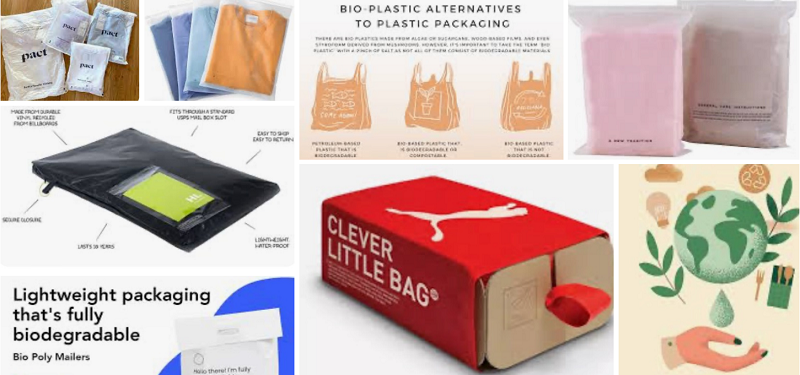
Recycled and Compostable Materials
One of the most prominent trends in sustainable packaging within the clothing industry is the use of recycled and compostable materials. Many clothing brands are turning to alternatives such as recycled paper, cardboard, and compostable plastics for their packaging needs. These materials, derived from recycled or naturally decomposing sources, offer an eco-friendlier solution compared to traditional plastic and paper packaging.Brands like Patagonia, M&S, Zara, and PVH-owned brands like CK and Tommy Hilfiger have committed to using recycled materials and minimizing single-use plastics in their packaging.
Minimalist and Reduced Packaging Designs
Another approach gaining traction is the reduction of packaging material. Brands are exploring ways to minimize the amount of packaging used by opting for minimalist designs and using less paper or plastic wrapping. This approach not only reduces waste but also communicates a brand's commitment to sustainability. TenTree, Katla, Harvest & Mill are among the brands leading in adopting minimalist packaging designs.Reusable and Circular Packaging
The concept of circular packaging is becoming increasingly popular. Brands are exploring reusable packaging options, such as reusable garment bags or boxes, which can be returned to the brand for reuse or recycling. This circular approach to packaging not only reduces waste but also promotes a closed-loop system where materials are reused, recycled, or composted. Kvatt, Hey Circle, and boutique brands like Another Tomorrow, Re/Done, and Mara Hoffman are leading examples of brands adopting circular packaging solutions.Water-Based Inks
In addition to the packaging material, the printing ink also plays a role in the sustainability of packaging. Many clothing brands are turning to water-based inks for printing on their packaging. These inks, which are less harmful to the environment compared to traditional petroleum-based inks, contribute to reducing the environmental impact of the packaging.Brands like Patagonia, Eileen Fisher, prAna, and Pact are among those adopting water-based inks for their packaging.
Overall, the clothing industry is making significant strides in sustainable packaging. Brands are increasingly recognizing the importance of sustainable packaging and are exploring a range of solutions, from using recycled and compostable materials to adopting minimalist designs and circular packaging concepts. These efforts, combined with consumer education and a commitment to a more sustainable supply chain, are driving positive change in the industry's approach to packaging, with potential benefits for the environment and society as a whole.
Sustainable Supply Chains
Sustainable packaging is often part of a broader effort to create a more sustainable supply chain. This involves sourcing materials responsibly, reducing waste in the manufacturing process, and promoting ethical labor practices. Apparel brands are collaborating with packaging companies and innovators to develop new sustainable packaging solutions like biodegradable plastics, plant-based materials, or packaging made from agricultural waste.Consumer Education
Consumer education is another important aspect of sustainable packaging. Brands are educating consumers about the importance of sustainable packaging and encouraging responsible disposal practices. This can help reduce the environmental impact of packaging after it has been used. The RealReal, for example, provides information on how to recycle or dispose of packaging responsibly on its website.Overall, the clothing industry is making significant strides in sustainable packaging. Brands are increasingly recognizing the importance of sustainable packaging and are exploring a range of solutions, from using recycled and compostable materials to adopting minimalist designs and circular packaging concepts. These efforts, combined with consumer education and a commitment to a more sustainable supply chain, are driving positive change in the industry's approach to packaging, with potential benefits for the environment and society as a whole.
Related read:
Patagonia’s Plastic Packaging: A Study on the Challenges of Garment Delivery
